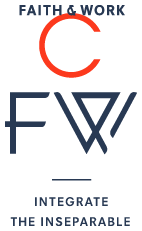Industry Specific
FINANCE
- 6-week Faith & Work Class
- 12-week Faith & Work Intensive
- Monthly Meetings-Sign up for email notifications HERE or check the EVENTS page for dates.
Recommended Reading
The MBA Oath: Setting a Higher Standard for Business Leaders
Max Anderson & Peter Escher (Portfolio)
What a great story, of some Harvard MBA grad students, who dreamed of making something like a “hypocrite oath” for MBAs, asking future financial advisors to promise not to knowingly hurt their clients. Some classmates and professors eagerly signed on, others protested. The document (and who would and wouldn’t sign it) went viral, the young idealists got on national TV and a movement began. Interestingly, one of the co-authors and leaders in this movement for ethical financial management, Max Anderson, serves at Redeemer Presbyterian through a variety of projects. A great book, a great story, well argued with many case studies of how to realign the profession.
The Economy of Desire: Christianity and Capitalism in a Postmodern World (The Church and Postmodern Culture)
Daniel M. Bell, Jr. (Baker Academic)
Part of the esteemed “The Church and Postmodern Culture” series edited by James K.A. Smith, this volume asks foundational questions about how our economic systems incite desire, and whether that is helpful in our formation as consumers, as citizens, as Christians, as humans. Can there be a “virtuous capitalism” that participates in God’s redemptive work in the world? Can we understand economics in light of theology? What economic activities might nurture properly ordered desires and how can Christians restore a greater sense of human dignity and social justice as we engage in economic practices? Fascinating, potent, provocative.
The Crisis and the Kingdom: Economics, Scripture, and the Global Financial Crisis
E. Philip Davis (Cascade Books)
Davis is Senior Research Fellow at the UK National Institute of Economic and Social Research, an expert of pension funds, a seriously published author with the prestigious Oxford University Press (Debt, Financial Fragility, and Systematic Risk and, Institutional Investors, about professional portfolio managers) and an evangelical pastor at Penge Baptist Church in London. Here he offers brief but profound insights, reflecting on a Christian analysis of the global economy, the financial crisis, and the impact global economic issues have on our lives. Few Christian thinkers have offered helpful, mature economic analysis of the world of high financial trading nor are trained to understand the complexities of that often little understood culture. We can be glad that Davis is equipped to offer Biblical and financial analysis of the crisis of 2007- 2008, which continues to ripple into our economies and lives today. I am sure we need more and even better books from a reliably Christian worldview, but for now, this is a must-read.
Theology of Money
Philip Goodchild (Duke University Press)
Written in a dense, interdisciplinary, academic style, this rigorous project brings religion and theology to bear on the most basic questions about the nature of money and the ways in which our view of financial matters has shaped much of our worldview, and the arrangements of many aspects of our secularizing culture. What might we make of our collective faith and idols, and the implications of our views of money and credit. As British theologian Catherine Pickstock writes of it, “Well written and well researched, Theology of Money is a remarkable and very important book; there is nothing like it currently in print.” Another critic says it is “indispensable.”
A Treatise on Money (Sources in Early Modern Economics, Ethics, and Law)
Luis de Molina (Christian’s Library Press)
Here is what the Acton Institute says of this book written by a Jesuit Christian in the mid 1500s: “A Treatise on Money is a selection from Luis de Molina’s larger work On Justice and Right. In these selections, he examines the various kinds of contracts and businessmen of his day and applies the scholastic method to analyze the nature of currency and exchange, offering a unique and indispensable look into the origins of modern monetary theory.” If you are interested in early modern Catholic ethics about banking, lending, usury, and such, try On Exchange and Usury written in the early sixteenth century by a Dominican theologian and philosopher, Thomas Cajetan, as he attempted to sort out which sort of banking practices were licit, illicit, or doubtful. Fascinating.
Religion and the Marketplace in the United States
Edited by Jan Stievermann, Philip Goff, and Detlef Junker (Oxford University Press)
This up-to-the-moment new book offers exceptionally scholar reflection on the nature of markets, how religion influences (or is influenced by) the nature the marketplace, and how American culture has often be characterized by its consumerist and financial attitudes. (De Tocqueville and Chesterton both remarked on American’s financial leanings.) What is the relationship of religion in the marketplace, and, more, the marketplace as a religion? There are several remarkable chapters that are specific case studies, attempting to show how financial orientations have overshadowed other sides of life, a very valuable insight for all of us to ponder.
Additional Finance resources are available in VIDEO and AUDIO.
